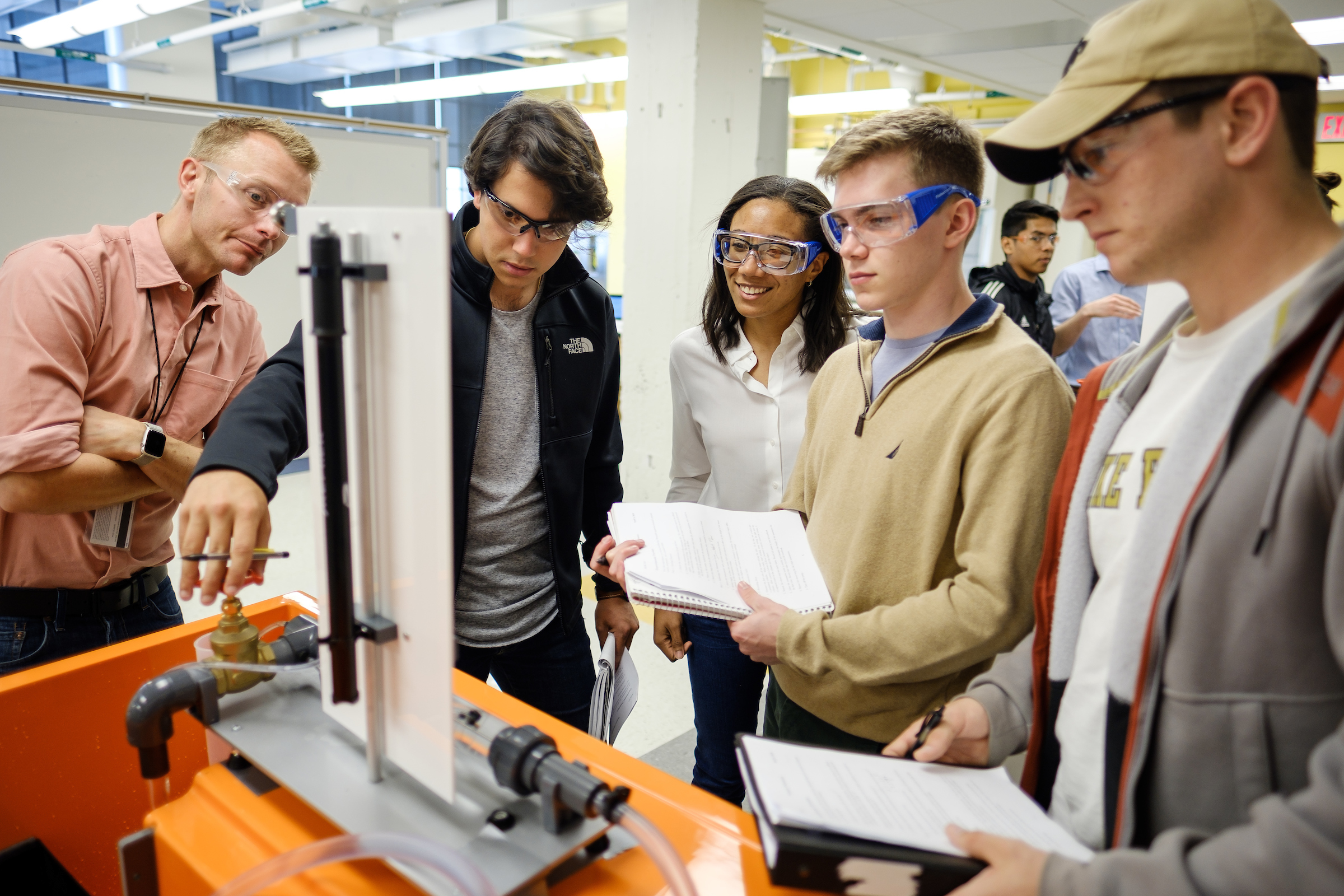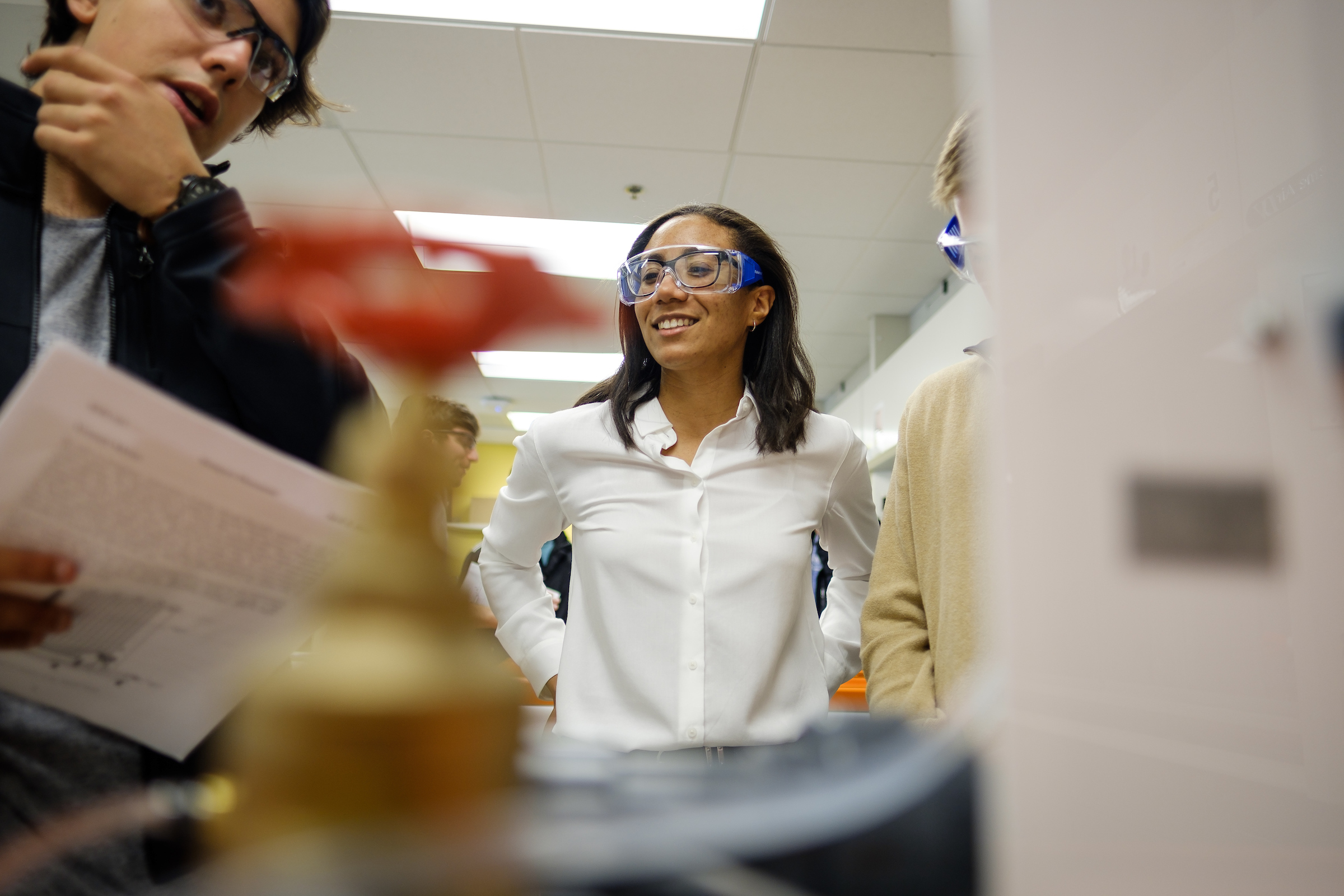Featured Faces of Wake Downtown Full Stories
Dr. Lauren Lowman
Hometown: Middletown, Delaware
Position: Assistant Professor in the Engineering department. Affiliate status in the physics department.
Where are you from originally/background?
I am originally from Delaware, a small town called Middletown. I lived there my whole life, and my first time living outside of Delaware was when I went to College. I went to Duke for my Undergraduate Degree. Even though I am a Professor of Engineering now, my Undergraduate degree was not in Engineering. I originally wanted to be an international diplomat or lawyer. When I was younger, I was very interested in global issues and languages so I majored in Public Policy, and minored in Spanish and Italian. I never even took a math class in College. For what I do now, this idea of Engineering being open and accessible to non-traditional students is so important. I was that student who thought I could not do it, it was too hard. By the time I had graduated I really regretted not having the opportunity to take a math class, and never pushing myself to try. In my first job out of College I was worked for a behavioral economist at one of the Duke research labs, and I knew I was interested in research, but I also knew that I really wanted more experience with the quantitative side. I audited Calculus 1 & 2 and I loved it. Instead of going on to pursue graduate studies in Sociology which was my plan I ended up applying to do a masters in Engineering, and the rest is history! Social Scientist by training, but now an Engineer. It is never too late to go back, it just takes more time! I try and tell my student “You don’t have to figure out what you are doing right now because that can change, but there are a lot of things you can do now to save yourself some time!”
How did you find your way to Winston-Salem/Wake Forest?
My husband was actually born and raised here in Winston-Salem. After I finished my PhD at Duke I was looking for a job, and the position at Wake Forest was posted saying “We are a liberal arts Engineering Department,” and I thought this is me! I am really interested in not only focusing on the engineering and the quantitative, but also really bringing in that social awareness, and making sure that we really understand the consequences of what we design and build, or put into the world. Also being an inclusive environment, and welcoming diversity because that is where innovation comes from.
What positions do you currently fulfill at Wake?
I am an Assistant Professor in the Engineering Department. I also have an affiliate position in the Physics Department. I am currently teaching EGR 312 which is our computational methods course for engineers. It is all about programming and how to combine math and programming to solve complex real-world problems. I am also contributing to EGR 111, our introductory Engineering class.
What is your current research centered on and how/where does this come into play outside of the Lab?
The overarching theme for my research is understanding how regular changes in weather, and extreme natural disturbances impact over ecosystem health and sustainability. One specific thread that I follow involves simulating ecosystem responses to extreme events and natural variability with numerical models. I am interested in how short- and long-term changes in water availability as a result of these events impacts vegetation growth and development. Plants will adjust their growth strategy to the amount of water that is available. For another thread, I am working on joint research project with Dr. Luthy in Engineering and Dr. Zarzar in Biology with the goal of evaluating how ecosystems in the Southeast U.S. recover after fires. We are building autonomous sensor networks to observe fire events and deploying these during controlled burns in order to gather data on fire conditions that may impact how plants regrow in the aftermath. The final thread involves geospatial analysis of changes in the land cover and land use using data collected from satellites orbiting Earth.
My research has come into play outside of the lab through the “Lost Waterways of Winston-Salem” event that I hosted on September 5, 2019. The event was about uncovering and understanding the implications of having a history of buried streams in the City of Winston-Salem. This project inspired me to start digging into how changing stream networks can alter flood responses in urban areas. This summer I advised an undergraduate researcher who began digitally mapping changes in stream in Winston-Salem using historical maps going all the way back to the 1700s. She was mapped how streams have changed and moved over time with urbanization. She turned this work into an interactive story map that allows users to explore on their own how streams have evolved over time in Winston-Salem.
What has been your favorite thing to teach/study/practice at Wake?
I am teaching it this semester – the computational methods class! I am so excited to develop the course. The subject matter is really close to my heart. It is funny teach material that is so math heavy since my undergraduate background was not in math or engineering. But once I started learning math, statistics, and programming in graduate school I really fell in love with it. I hope that my students see my passion for the subject.
Favorite thing about Wake Downtown/Winston-Salem?
At Wake Downtown the Architecture is beautiful. It may seem odd to say this about an old tobacco warehouse, but all of the natural light is amazing. I love that Wake Forest invested in a campus in Winston-Salem’s Downtown, and I enjoy how I feel like a part of the Downtown community when I work here.
Is there anything else that you would like people to know about your work or about what you do?
People always want to put labels on others. They will try to put you in a box, “you are an environmental engineer, you are a mathematician, you are a physicist, you are a philosopher, and that means you do X.” I do not see myself within one box. I really see myself as an integrator of knowledge. I love generating new ideas, and I love going down different research paths that might not be entirely related to my specific area of engineering. An example is the way that we model water flow through plants – the idea actually came from electrical engineers, and how they model circuits. I love generating ideas with all kinds of people because you never know where it will lead to, and it could lead to a breakthrough in how we think about different systems. For me, best ideas come from conversations. I love having different conversations with a variety of people and allowing new ideas to develop naturally from them!


